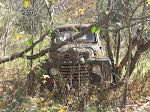There
are countless songs about God’s amazing grace, as well there should be for His
grace is truly amazing. I have to say that
God’s patience with children is equally amazing. Maybe it takes that holy patience before we
find our way to His amazing grace. As
one who probably tests His patience regularly I am grateful for the loving patience
He shows toward me.
There is
an example of His patience in scripture that blows my mind and I ask myself,
“am I ever that stupid?” Notice that I
ask myself rather than God or someone else.
I don’t really want an answer.
Maybe that is a bit harsh. Maybe
I should say “am I ever that clueless?”
That sounds a little better a little less judgmental.
Here is
the background. In Genesis chapter 19 some bad things are about to happen. Some angels, sent by God visited Abraham’s
nephew whose name was Lot who lived in Sodom.
They asked him if he had any relatives in the city. They warned him that if he did he had better
get them out now. This is what the
angels told Lot:
Verse
13: “For we will destroy this place, because the
outcry against them has grown great before the face of the Lord and the Lord
has sent us to destroy it.”
It was a
pretty clear message. I think I would have been heading for the door. From
this message we learn a couple things.
One, that God’s patience does have a limit, and two, going past that
limit is not a good thing.
I am very
curious about that “outcry” thing. I
know that God sees all and knows all. He
is aware of every tear we shed, and I know that when Cain (Adam’s son) slew
Able (Adam’s other son) God said to Cain, “What have you done? The voice of your brother’s blood cries out
to Me from the ground.”
When you
consider all the sad desperate mournful cries that go to God’s ears no wonder
He desires to hear our expressions of praise. No wonder it is dear and refreshing to Him. I don’t know if angels were taking messages to
God from Sodom or if it was the prayers of someone. God told Abraham that he would spare the city
if there were ten righteous people living there. Evidently there were not. So I’m not so sure about anyone praying about
the evilness that was taking over.
This outcry
regarding the evilness is a mystery to me that causes me to ponder. I don’t know how the outcry got to God, maybe
nature itself speaks to God, but I know God heard the outcry and I know that
God acted because of it. I wonder if
there is always an outcry that accompanies evil. If God’s patience with those people lasted
until there were not ten righteous people left that is amazing patience.
We see His
patience again in verse 16. It says that the angels, knowing what was
coming, knowing what their assignment was, physically grabbed Lot and his wife
and daughters and brought them out of the city. They told Lot, “Escape for your
life! Do not look behind you nor stay
anywhere in the plain. Escape to the
mountains, lest you be destroyed.”
Now, here
comes my idea of stupidity or cluelessness.
Lot says, “Please, no, my lords!
I know that I have found favor in your sight, (let me ask a little more
favor) and I know that you have shown mercy and have saved my life here,(let me
beg a little more mercy) but I can’t go to the mountains, because some evil may
overtake me and I might die. Let me stay in this small little town here on the
plains.” (I’d rather take my chances among the fire and brimstone) Words in
parenthesis and sarcasm are mine not scripture.
If an angel told me destruction was coming go to the mountain I don’t
think I would be bargaining with him for more mercy, grace and patience with
me. I would be finding that mountain.
Well, more
favor was shown to Lot and he was granted permission to go to the small town of
Zoar and that small town was spared.
I was
amazed at Lot’s words regarding the mountains.
The angels designated it as a safe place. Lot explains “some evil may overtake me and I
might die.” Hmmm, he was living in a place
where evil was taking over, that’s why it would soon be raining brimstone. I don’t think Lot knew what evil looked like.
Maybe it was a case of political correctness slowly going to seed. It begs the question, are we losing our
ability to recognize evil?
I wish I
could ask Lot, what “evil” lurked in the mountain that was a worse evil than
the evil he had been living amongst?
There is
a chapter two to this story. In verse 30 scripture goes on to
say: Then Lot went up out of Zoar and dwelt in the mountains, and his two
daughters were with him; for he was afraid to dwell in Zoar. And he and his two daughters dwelt in a cave.
It is not
a good thing when we lose the ability to know when a thing is evil and will
bring destruction. If you want to know
what is evil search out what God says is evil.
If the government says something is legal but God says it is evil we are
in trouble. God is amazingly patient
but…….I don’t want to be around when it runs out.





















